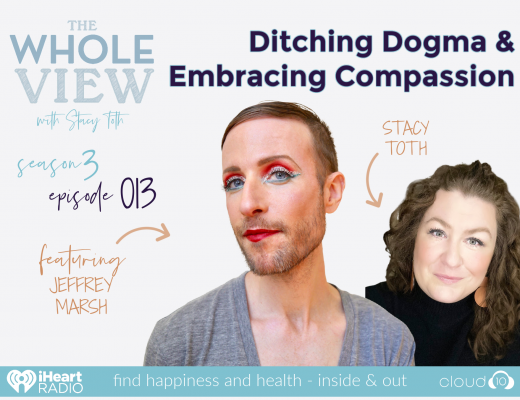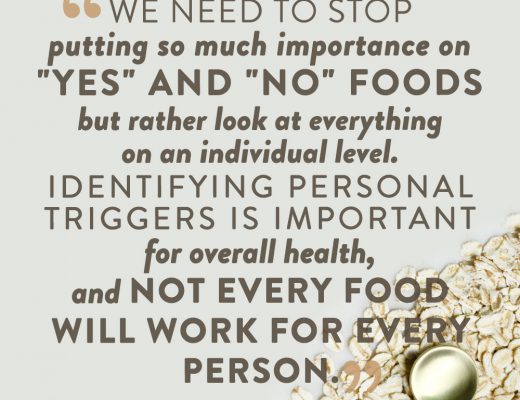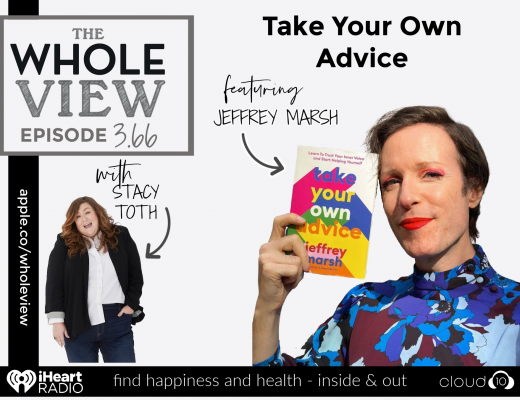Welcome co-founder and CEO of Slo Jeans Kristian Hansen to The Whole View! Stacy and Kristian explore “eco-conscious capitalism” at the intersection of sustainability and accessibility, and they give us tips on finding clothing that fits your values, budget, and body.
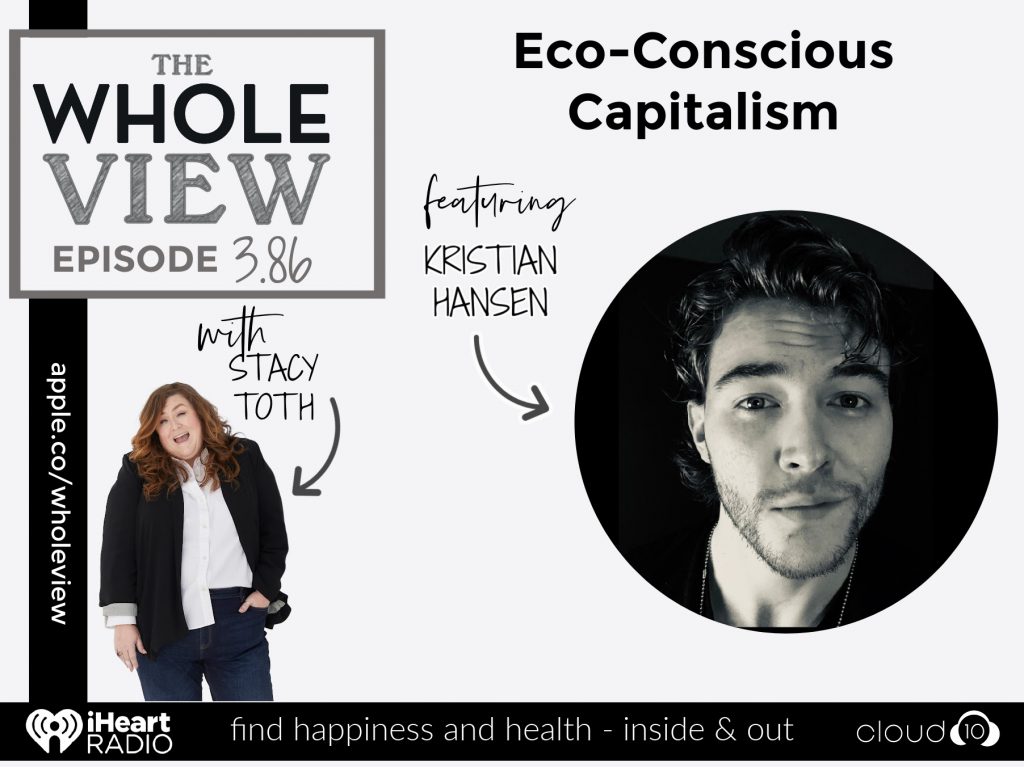
Find Kristian:
If you enjoy the show, please leave a review. Letting people know on iTunes or however you listen that it’s worth their time could change someone’s life!
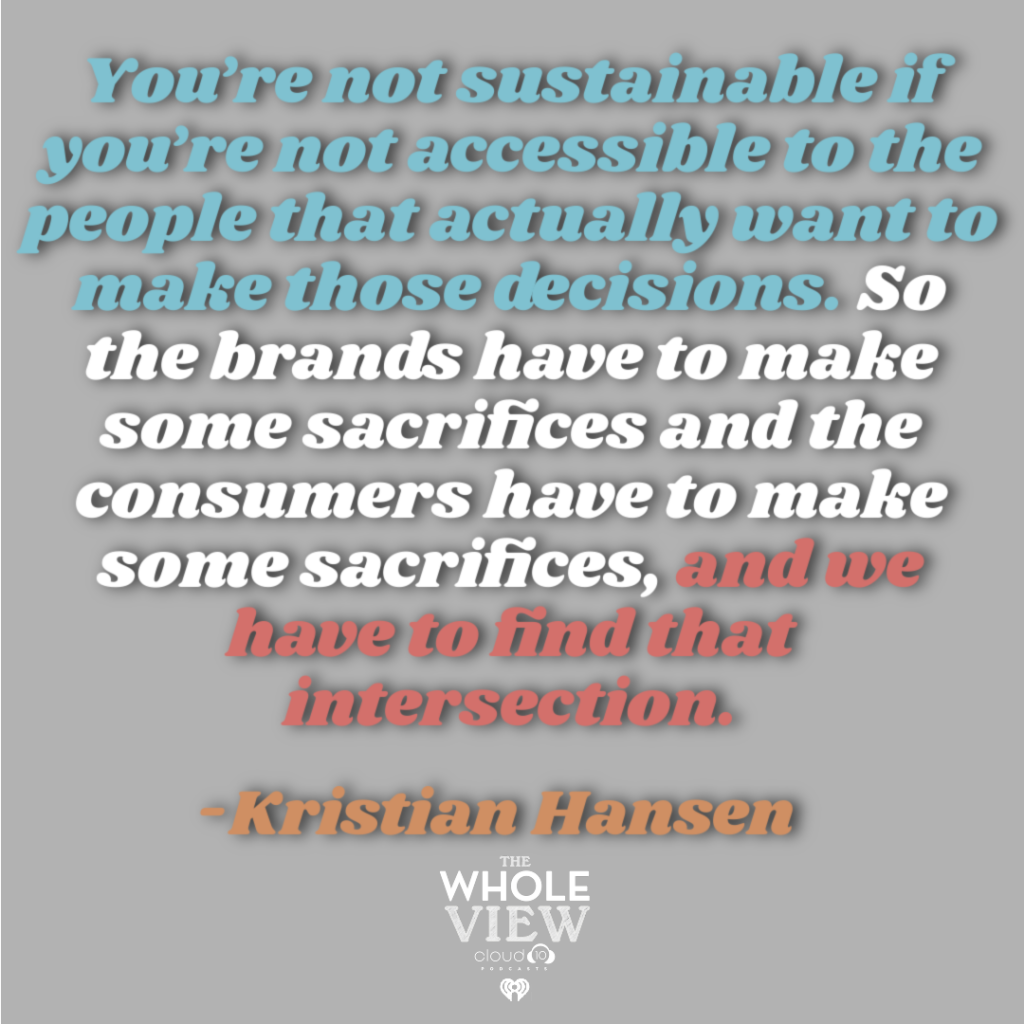
Key Takeaways
Introductions
- Kristian is a former hockey player who ended up working in fashion sourcing. He said the conditions and exploitations he encountered behind the scenes kept him up at night.
- After a trip to the thrift store where he ended up purchasing some “women’s” jeans and was appalled by the lack of pockets, which started his journey into finding a niche to enter the fashion industry.
- He is now the co-founder and CEO at Slo Jeans out of Canada. He and his team are redefining what it means to build companies through community, with a slow fashion revolution.
- Furthermore, they customize their jeans to any size. He believes everyone deserves to be confident in what they’re wearing. The size set is broken, not you.
Eco-Conscious Capitalism
- People need clothes and people want to buy clothes.
- Eco-conscious capitalism is partly about going back to the way things used to be made, using the best quality fabric because it’s going to last a long time. Also, thinking about it at every single level, not just buying sustainable material, but also paying fair wages (not just living wages) and ensuring that every part of the supply chain is examined and companies aren’t cutting corners just to increase profit.
- Kristian believes you can be profitable and make a difference and improve the world for people and the planet while still making money.
- The reality is if it’s too good to be true, it probably is. If a “sustainable” pair of jeans is $29, it’s just not possible.
- Will the brand let you “look into the kitchen”? Some tips on what to look for:
- What is the marketing like? Are they focused on a lot of “certifications” but nothing to really back it up?
- What is the composition of the fabric?
- Does the brand tell you where the product is made? A lot of brands won’t tell you on their website, only on the product for import purposes.
- Do they have any form of policy for labor or ethical supply chain?
Next Steps
- Don’t let perfection be the enemy of the good.
- Consumers need to continue to demand that the brands improve lower quality products. Kristian says the expectation shouldn’t be either your super sustainable and everything’s okay or you’re super cheap and exploitation is through the roof.
- Stacy also encourages us to hold influencers and content creators accountable and encourage them to make more sustainable choices when doing try-ons, instead of succumbing to trends of fast fashion.
- Stacy suggested clothing rental services and thrifting sustainable brands. Kristian thinks these are great suggestions, though has concerns about the thrifting space which can give people “permission” people to buy a lot of fast fashion because they are doing “good” by donating or thrifting it.
Studies, References & Products
- The Whole View, Season 3:
- ThredUp
- The Real Real
- Able
- SloJeans
Sponsors
- Honeylove.com/WHOLEVIEW | Get up to 50% off sitewide
- Puori.com/WHOLEVIEW | Use code WHOLEVIEW to get 20% off sitewide
- T.N. Dickinson’s
Want more info on our Real Life? Healthy recipes, parenting tips, and general lifestyle stuff goes out in our Real Everything newsletter, join here.
So never want to miss a post, sale, or deal? Join my Healthy Inside & Out e-mail list for more info on non-toxic living and safer skincare!

